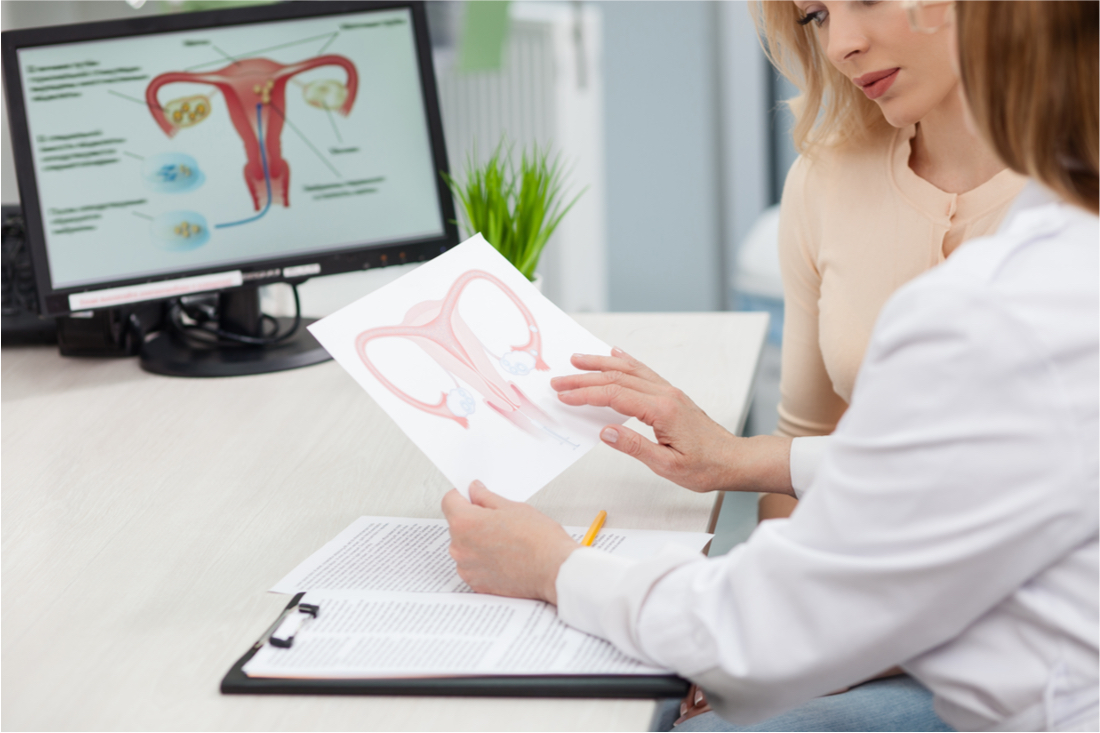Seven conditions that can affect female fertility
A number of things can affect a woman’s fertility, including general health and lifestyle as well as underlying medical conditions, such as endometriosis, endometrial polyps and polycystic ovaries syndrome.
Infertility can occur with no clear cause too – around 25% of all UK cases are unexplained – but if there is an underlying cause, getting an accurate diagnosis is an important step. You can find out more about the female fertility tests and diagnostic services available at King’s Fertility on our Female Diagnosis page.
It’s also important to remember that the impact of these conditions can vary significantly, and not everybody will experience difficulties conceiving as a result. But if you do, there are often lots of things we can do to help.
Here are seven conditions that can affect female fertility:
[answerpacktv video=”how-does-endometriosis-affect-fertility” header-only=”yes” single-view-mode=”yes” view-playlist-label=”View more videos” header-link=”/video-faqs” landing-page-header-text=”View our short videos designed specifically to answer your questions” landing-page-header-title=”Fertility Videos”]
1: Endometriosis
Endometriosis affects around 1 in 10 women and occurs when tissue similar to that found within a woman’s womb lining grows outside of the uterus. Heavy, painful periods are the main symptom, but the condition can also cause endometrial cysts and scar tissue (adhesions) to form, possibly affecting the areas within the pelvis as well as bowels and the cervix, leading to chronic pain and abnormal bleeding.
Treatment usually involves hormonal therapy and medication to help manage bleeding and pain, and sometimes surgery to remove the areas of endometriosis. Most people with endometriosis don’t experience infertility but difficulties can occur, particularly if there’s severe scar tissue affecting the ovaries and fallopian tubes.
2: Polycystic ovaries syndrome (PCOS)
Lots of women have polycystic ovaries – where the ovaries become enlarged with lots of small cysts/fluid-filled sacs – but not everybody develops the full syndrome. PCOS can cause wide-ranging symptoms, including irregular, absent or heavy periods, weight gain, acne and excess body hair, as well as mood swings and depression. It can also cause issues with ovulation and so some women with PCOS may need treatment to help stimulate ovulation, as well as IVF, in order to become pregnant.
3: Premature ovarian failure
Premature ovarian failure, also known as premature ovarian insufficiency (POI), means loss of ovarian function before the age of 40. It’s often linked with early menopause, although that’s not always the case. Symptoms typically associated with menopause can occur, such as infrequent or absent periods, hot flushes and disrupted sleep, plus mood, energy and libido changes, but you’ll need tests to measure hormone levels to confirm the diagnosis.
Premature ovarian failure management often involves hormone replacement therapy (HRT) and oral contraceptive treatment to minimise symptoms and risk factors linked to reduced oestrogen, such as an increased risk of osteoporosis. Some women with POI are still able to conceive, but many will need fertility treatment.
4: Fibroids
Fibroids – benign growths that develop within the muscle of the uterus – are very common and don’t always cause any problems. Sometimes however, fibroids can cause heavy periods, abdominal pain and discomfort during intercourse. Depending on the location and size of fibroids, they can also lead to difficulties falling pregnant or miscarriage. Our information video on fibroids explains more.
5: Polyps
Like fibroids, polyps are growths that can develop in the lining of the uterus, as well as the cervix and fallopian tubes. Signs and symptoms of cervical polyps include heavy periods, bleeding between periods and/or after intercourse, and sometimes pain. Whether polyps affect fertility usually depends on their location and size – our information video on polyps explains more – and surgery to remove them may be required.
6: Blocked or damaged fallopian tubes
If fallopian tubes are blocked or damaged, eggs may be unable to reach the uterus, resulting in trouble conceiving. In some cases, women may be able to conceive but the fertilised egg may become stuck in the fallopian tube, causing an ectopic pregnancy.
A number of things can cause fallopian tube damage, including scar tissue from endometriosis or previous abdominal surgery, pelvic inflammatory disease (PID) and certain sexually-transmitted infections (STIs). Surgery can sometimes help, although some women may need further fertility treatment too.
7: Thyroid disorders
Thyroid disorders, including an under or over-active thyroid, can affect women’s health in a wide range of ways, including fertility. Symptoms can creep up slowly and be very vague – such as fatigue, skin, hair, weight and mood changes, joint and muscle pain and very heavy or light periods – but getting an accurate diagnosis and treatment is important.
With the right management, lots of women with thyroid problems are able to have a healthy pregnancy, but some may find fertility treatment is needed.

